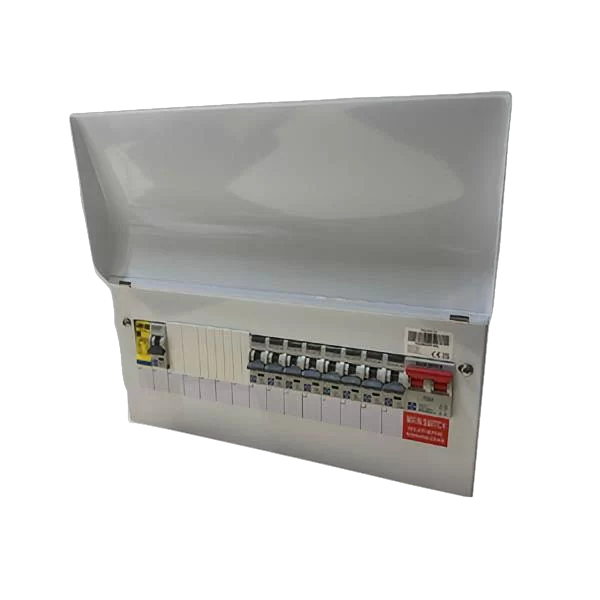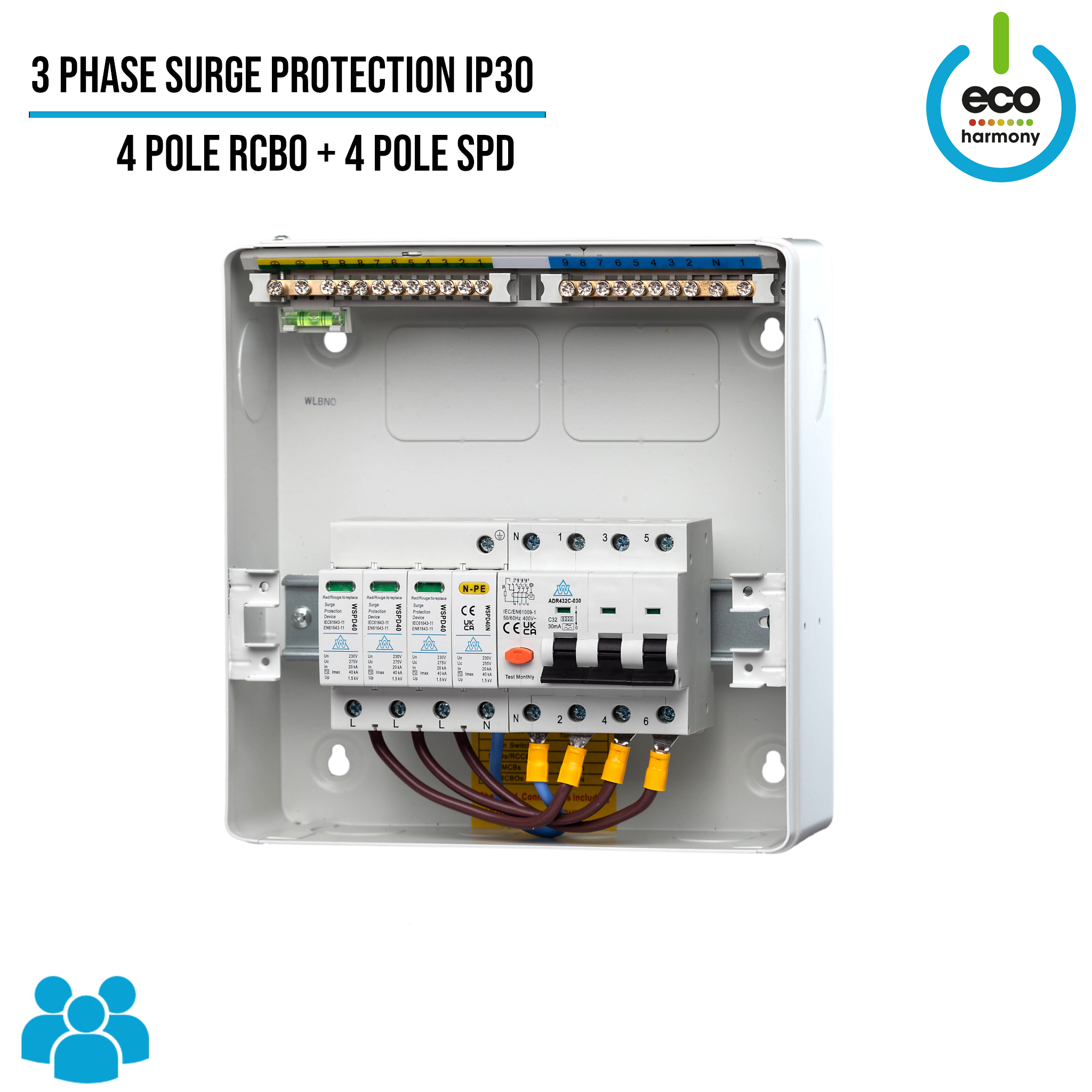A Comprehensive Guide to Maintaining Your RCBO CONSUMER UNITS Effectively
A Comprehensive Guide to Maintaining Your RCBO CONSUMER UNITS Effectively
Blog Article
The Function of Consumer Devices in Effective Power Management Solution
Customer devices are integral to efficient power monitoring systems, serving as the primary distribution factors for electric power within structures. The arrival of smart innovations has actually better boosted their capability, allowing for real-time information monitoring and nuanced energy consumption evaluation.
Recognizing Customer Units

Recognizing the duty of customer devices starts with acknowledging their vital feature in securing electric systems. By separating faults within certain circuits, consumer units protect against extensive failures and prospective fire hazards. This seclusion is attained through the use of breaker that trip or merges that strike when a fault is detected, therefore removing the electrical flow to the affected circuit.
Moreover, customer systems promote the well organized circulation of power, improving the effectiveness of power use. They enable the methodical administration of electric lots, which can be specifically vital in industrial and commercial settings where demand can fluctuate substantially. Correctly conserved customer systems add to the long life of electrical systems and aid in lessening downtime triggered by electrical failings, inevitably supporting the smooth procedure of energy-dependent facilities.
Smart Technologies Combination

A vital advantage of wise customer systems is their capacity to utilize progressed formulas and artificial intelligence for anticipating analytics. This enables preemptive adjustments based on use patterns, weather condition projections, and various other variables, substantially increasing general efficiency. In addition, clever customer systems help with demand action programs, where energy usage can be dynamically adjusted throughout peak periods to maintain the grid and decrease expenses.
The integration of renewable resource resources, such as solar and wind, is likewise streamlined through smart consumer units. By wisely handling the intermittency of these resources, these devices ensure a balanced and reputable energy supply. Additionally, wise consumer systems enhance user engagement by giving detailed insights and remote capacities via mobile applications, fostering a more aggressive approach to power conservation and sustainability.
Surveillance Power Usage
Building on the abilities of smart innovations integration, checking power usage ends up being a vital focus within power management systems. Reliable monitoring acts as the foundation for identifying energy inefficiencies and implementing rehabilitative procedures. By leveraging advanced metering facilities (AMI), real-time data on energy usage can be gathered at granular degrees, providing important insights into usage patterns and peak demand periods. This data-centric technique allows both customers and energy managers to make enlightened decisions intended at minimizing waste and enhancing total effectiveness. visite site
Smart meters and Net of Things (IoT) gadgets play an essential function in this surveillance process. These devices can track power usage in real-time, transferring information to central systems for evaluation.
The integration of these modern technologies not only encourages consumers with thorough information concerning their power use yet additionally sustains energy service providers in handling lots circulation better. Inevitably, continuous and exact surveillance is indispensable for achieving power effectiveness, price financial savings, and sustainability objectives within energy management systems.
Optimizing Appliance Use

One effective technique includes determining height and article off-peak hours to move energy-intensive tasks, such as washing or dishwashing, to times when power demand is reduced. This not just minimizes strain on the grid yet additionally maximizes reduced energy tariffs. In addition, incorporating device understanding formulas allows for anticipating maintenance, making sure home appliances run at optimal efficiency and prolonging their life-span.
Energy management systems can additionally integrate user-specific preferences and behaviors to customize device use routines. For instance, wise lighting systems can change brightness based on tenancy and natural light accessibility, while heating and cooling systems can preserve comfort levels without excessive power usage.
Promoting Sustainability
Promoting sustainability within energy monitoring systems includes not just enhancing effectiveness but additionally fostering eco responsible methods. Consumer devices are integral to this procedure, as they supply real-time data and control devices that enable users to check and lower their energy intake. By leveraging innovative modern technologies, customer devices can determine energy-saving possibilities and facilitate the combination of renewable resource resources like solar and wind power.
One crucial facet of advertising sustainability is educating consumers on the benefits of accountable power usage. Via thorough understandings offered by customer systems, individuals can make educated choices that decrease their carbon footprint. These systems can suggest ideal times for running high-energy devices based on grid need and renewable power availability, therefore decreasing dependence on fossil fuels.
Moreover, customer systems support the adoption of smart grid innovations, which boost the general effectiveness and integrity of energy circulation. By allowing two-way interaction between consumers and energy carriers, these systems can dynamically get used to energy needs, minimizing waste and promoting making use of lasting power methods.
Verdict
Consumer systems, as important parts of power management systems, significantly enhance electrical safety and security and performance within structures through circuit defense and smart modern technology integration. Real-time data tracking and analysis promoted by these devices maximize energy intake and appliance usage. In addition, the consolidation of renewable resource sources advertises sustainable techniques, contributing to decreased total power usage and reduced carbon impacts. Consequently, consumer devices play a crucial duty beforehand both power efficiency and ecological sustainability.
Advancements in smart modern technologies have revolutionized the abilities of power administration page systems, especially via the integration of clever consumer devices.Building on the abilities of wise innovations assimilation, keeping an eye on power intake becomes a crucial emphasis within energy management systems.Effective appliance use optimization is a critical part of power monitoring systems, intending to boost performance and lower unneeded power intake.Customer systems, as indispensable components of energy management systems, dramatically enhance electrical safety and security and effectiveness within structures through circuit defense and wise modern technology integration. Additionally, the consolidation of eco-friendly power sources promotes lasting techniques, adding to decreased overall energy consumption and reduced carbon impacts.
Report this page